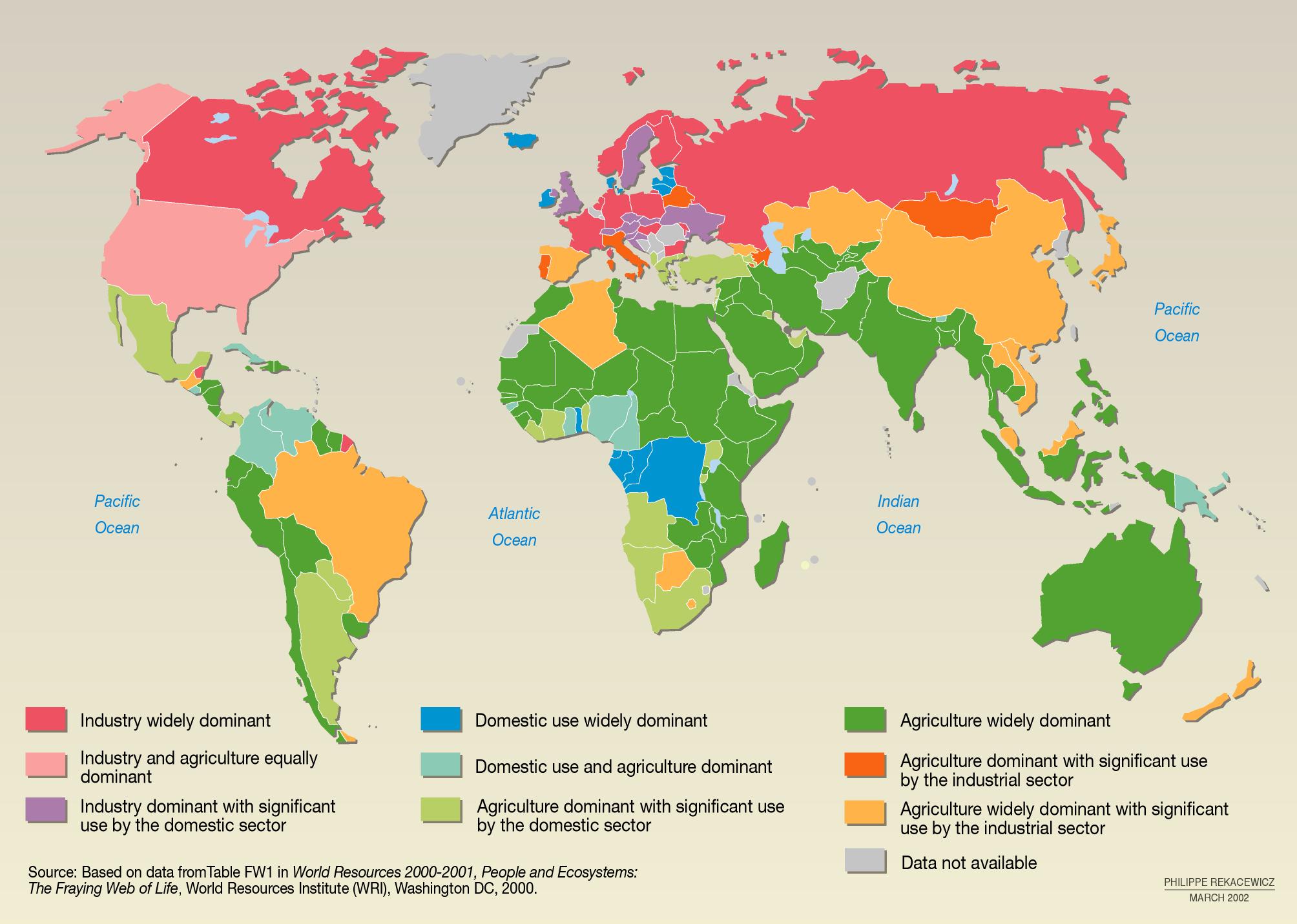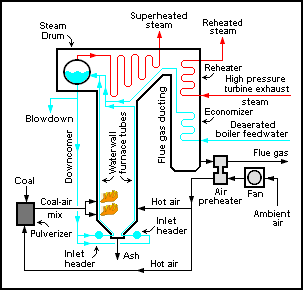How do we use water resources?
1 Answer
We use water resources for agriculture, for industry, for manufacturing, for household uses such as drinking and washing, and in other ways. In may instances, we use water unsustainably.
Explanation:
Water is used in agriculture, industry, manufacturing, and households. Depending on where in the world you live, the amount of water you use in each sector will differ. Different countries also use different amounts of water.

In agriculture, water is used for irrigation and to water livestock. Globally, agriculture accounts for 70% of all freshwater used.
Water is also used in industry and manufacturing, as it is often used at some point in the production process. Water is used to dilute, cool, process, or transport products. Mining or resource extraction can use a substantial amount of water to remove a mineral or substance from the earth. Power plants use water to cool down hot machinery. The image below is of a coal power plant that uses steam to produce electricity:

Households use water for drinking, bathing, laundry, watering lawns and gardens, flushing toilets and cooking.
In many cases, our water use is not sustainable. Much of the goods we purchase are unsustainable. For example, as much as three liters of water is used to produce one liter of water (see here), thus drinking bottled water is using more water than just the water in the actual bottle. It can take 2,700 liters of water to make a single cotton tee-shirt, so buying one and wearing it once isn't a sustainable decision.
Agricultural practices are often unsustainable. Creating lush lawns and household gardens in dry climates is impractical. Growing food crops in areas with low precipitation and relying on irrigation can be very unsustainable. Leaky irrigation systems or use of old technology wastes water. The meat and dairy industry uses a tremendous amount of water.
Thus, we use water in many different ways that we may or may not be aware of. Where we live also determines how much water we use and how much of it.

